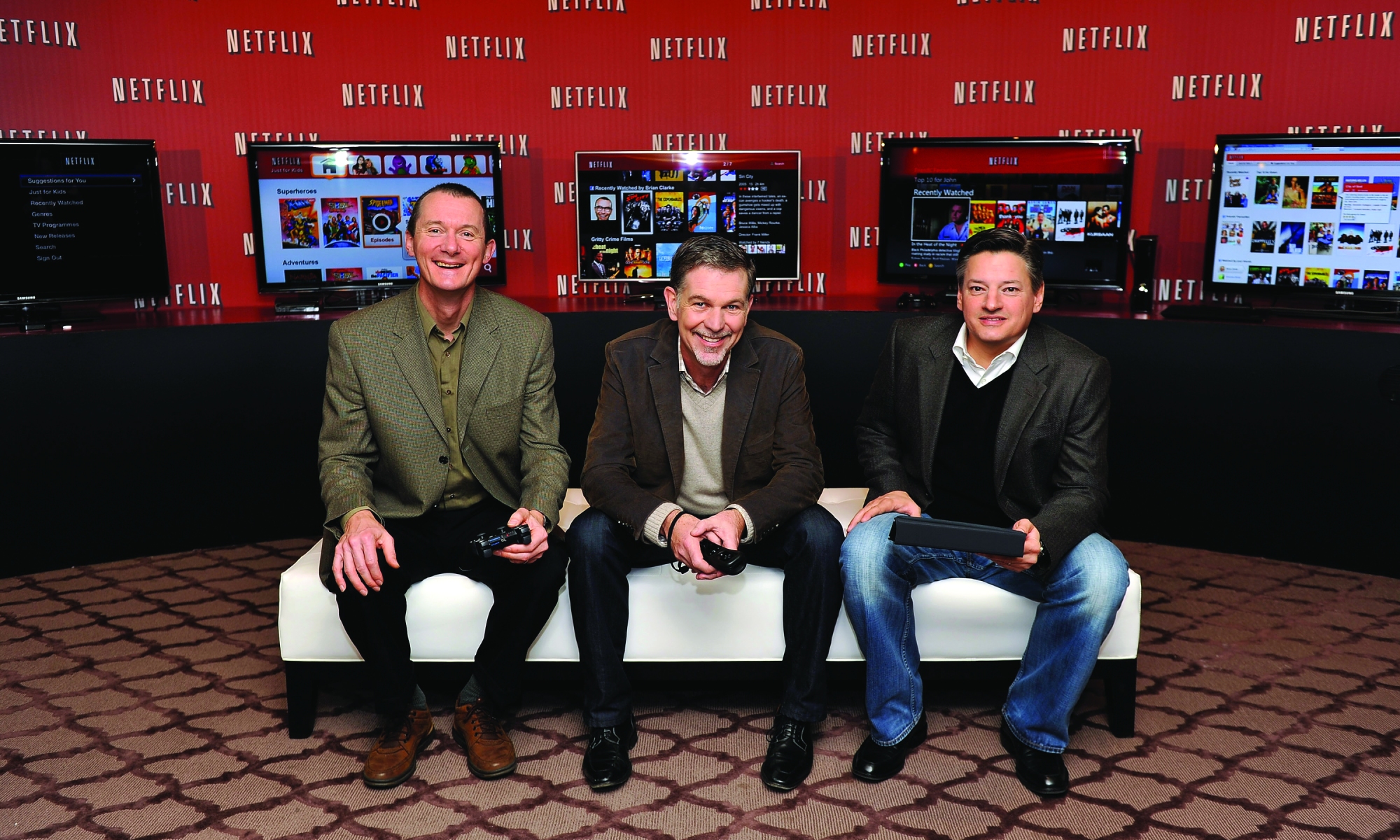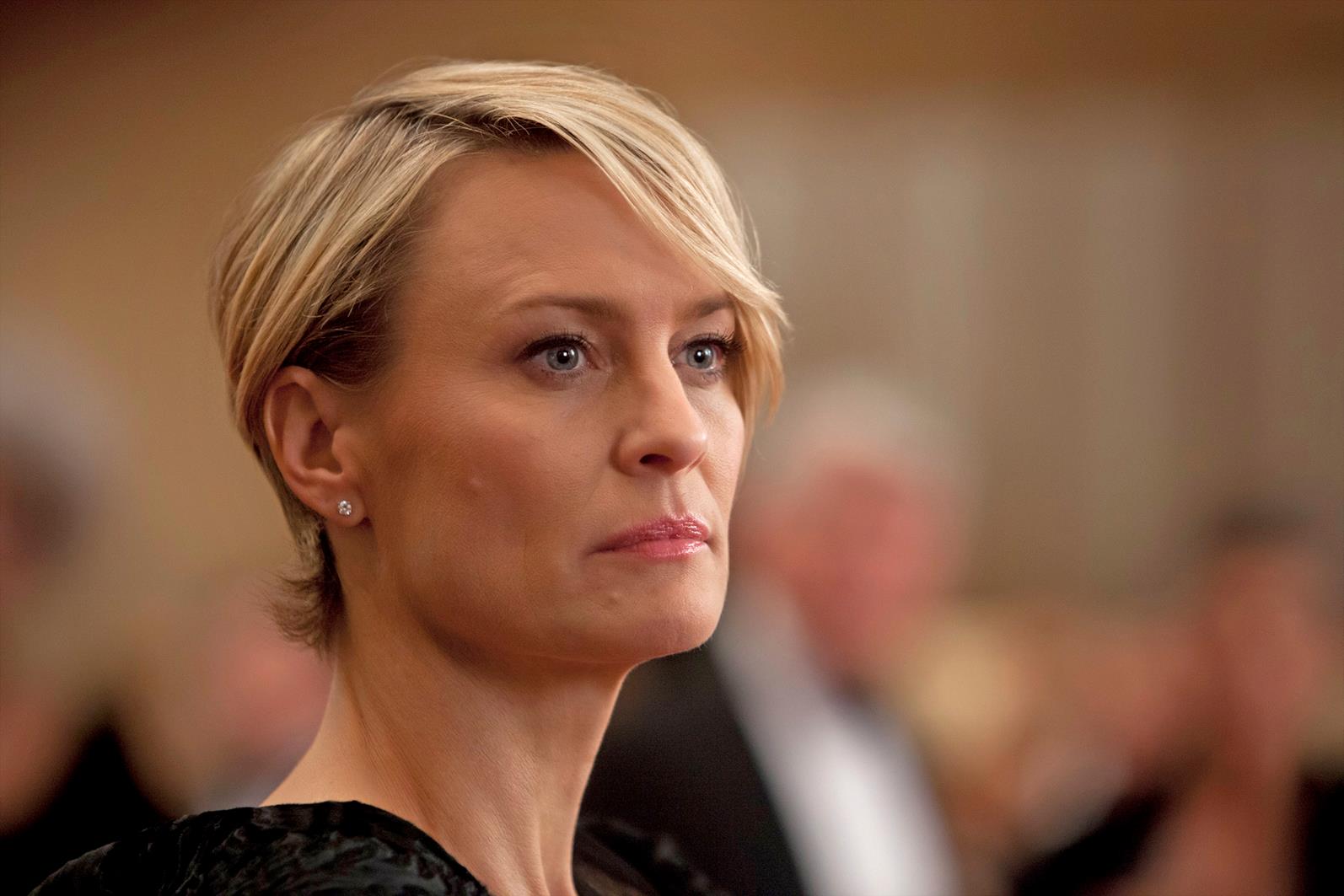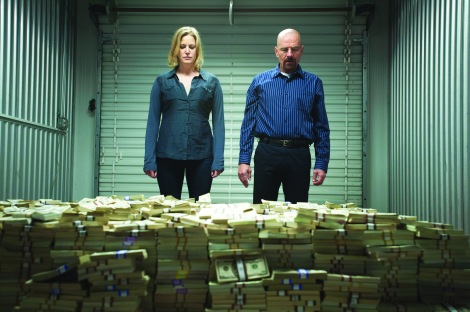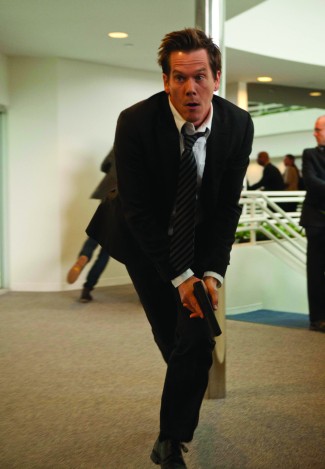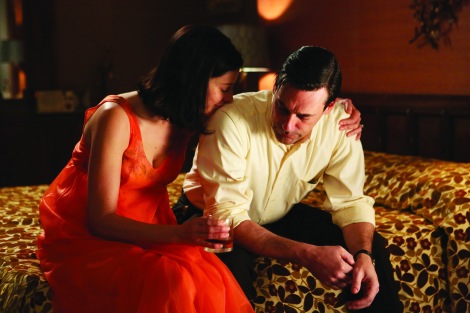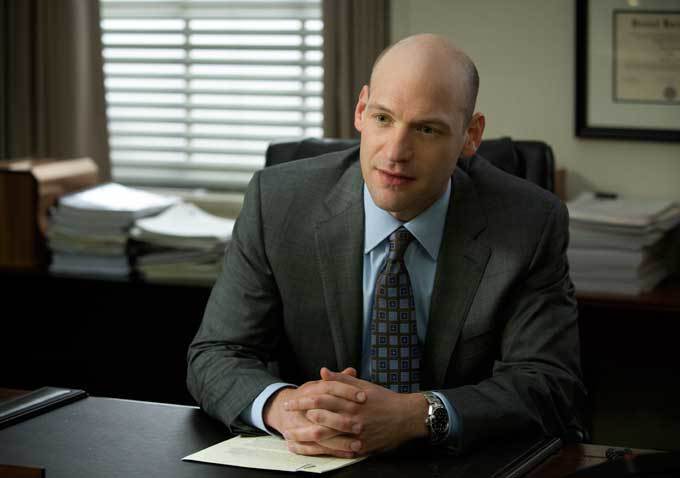Paula Bernstein is an AwardsLine contributor.
When House of Cards debuted on the streaming service Netflix in February, the series’ awards-laden cast and crew, high production values, and cinematic storylines worked awards prognosticators into a frenzy. Could the 13-episode series be the first nonbroadcast, noncable series to break through at the Emmys?
If House of Cards, its exec producer-director David Fincher, or its stars Kevin Spacey and Robin Wright are nominated for an Emmy in a major category, it will represent a watershed moment for the television industry and a sign of things to come—when digital shows go head-to-head with broadcast and cable programs
for Emmy Awards.
But while House of Cards represents a revolution in terms of how viewers consume programming, one indisputable fact remains: Emmy voters watch eligible series on DVD. In some ways, the old-media format of “For Your Consideration” DVD screeners might be the great equalizer for new streaming media.
As far as audiences are concerned—especially younger ones weaned on the Internet—there is no difference between shows that are streamed and cable and broadcast programs. A good show is a good show, whether it’s on broadcast, cable or the Internet. The Academy of Television Arts and Sciences doesn’t see a distinction either—at least not since 2008 when a rule change expanded the Emmy eligibility requirements to include broadband programs. (However, no digital program has ever been nominated, aside from a handful of nominations and wins in the short-form and interactive categories.)
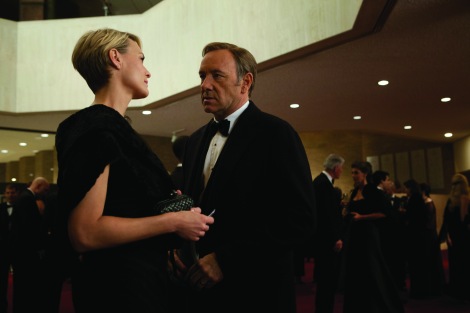
“For the TV Academy, the platform origination is secondary to the content in terms of our competition. They might be coming in the room through different doors, but once they come into the room, they’re all in the same category,” says John Leverence, the TV Academy’s senior vp of awards. “The content, rather than the delivery mode, is what counts.”
Ted Sarandos, Netflix’s chief content officer, has said that he doesn’t operate within the traditional Hollywood system—he doesn’t release ratings, doesn’t always require pilots, launches all episodes of a season at the same time, and allots movie-size budgets for television series. But when it comes to the Emmys, even Netflix has to send out screeners. Which begs the question: Even though streaming services are changing the rules of the game when it comes to creating quality programming, does it matter when voters generally view all of the shows—broadcast, cable and streaming—on DVD?
“Content is content. You don’t judge a show differently if you watch it on a 13-inch TV or 32-inch TV. It’s just a different way of getting it. When screeners go out, people watch it on DVD,” says House of Cards executive producer Dana Brunetti. “You’re supposed to be judging the content, not the way you view it.”
Intent on showing the industry that it didn’t have to play by the same rules, Netflix was, at one point, unsure of whether or not it would send DVDs to voters. Wouldn’t that be sending mixed messages to the industry?
Nevertheless, when the streaming company eventually chose to send out mailers to Emmy voters, they gave TV Academy members two methods in which to watch and consider House of Cards and Arrested Development. In the House of Cards mailer, they provided a unique code that allows ATAS members to access Netflix and stream the series through the voting period. But, realizing that not all members are comfortable with technology, they also sent out the old-fashioned DVD screeners. “Leading up to nominations, we felt it was important to give viewers and voters different ways in which to watch—so they could pick what they preferred,” says Sarandos.
Of course, this isn’t the first time the question of how to reach voters with a new technology has arisen. Not so long ago, cable was the new kid on the block at the Emmys. Back in 1988, when the TV Academy first allowed cable networks to compete in the Primetime Emmy Awards, broadcast networks griped about the new edgier competition, which didn’t have to follow the same guidelines as network television—there were fewer content restrictions and fewer hours of programming to produce.
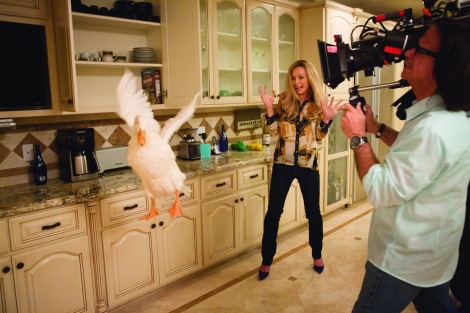
It took another five years for a cable network to win its first major award (HBO’s Stalin and Barbarians at the Gate tied for outstanding made-for-television movie).
In recent years, cable networks have largely dominated the major Emmy categories—particularly drama series—with critically acclaimed shows such as Breaking Bad, Mad Men and Homeland, among many others. What was once considered edgy fare is now mainstream.
Now cable networks are the ones facing upstart competition in the form of digital programmers, such as Netflix, Amazon, Hulu and other online companies investing in original series—and some cable execs are leveling the same complaints against streaming services that the broadcasters lobbed at them: They’re playing by a different set of rules.
But whether or not it takes streaming series as long as it took cable to break through at the Emmys is anyone’s guess. “Internet became eligible in 2008,” Leverence says. “Five years later, we have House of Cards. The rampup period could be similar.”
In addition to House of Cards and Arrested Development, Netflix has a full slate of programs in production and development, including the horror-thriller Hemlock Grove; Orange Is the New Black, based on the book of the same name; Derek from Ricky Gervais; and Lilyhammer, which will return for its second season in the fall.
Amazon let viewers decide which of its 14 pilots would be picked up, ultimately settling on six that were announced in May, and Hulu is producing original series, the first of which is set to debut this summer. YouTube is also a potential contender.
“In the future, I think a large portion of the nominees will come from different methods of distribution, simply because there will be more content distributed,” says Brunetti. “It’s simple math.”
Some broadcast and cable executives grouse about the fact that the press gives undue attention to digital shows like House of Cards because they’re a novelty. “When you hear people talking about it, they are talking about the platform and the mode of delivery rather than the quality,” says one veteran cable executive.
Interestingly, Sarandos points out that most of the people who watched House of Cards watched on their TVs, rather than their mobile devices or laptops. “I hope our content is judged at the same high level as anything on television, regardless of how it gets to the television,” he says.
And not all executives see the digital influx as a threat. “It took a long time for cable shows to get the recognition from the TV Academy. It would be a little bit disingenuous to complain about allowing these streaming guys to allow their best programming to be considered,” says Robert DeBitetto, president of brand strategy and business development at A&E Studios.
The nomination process still slightly favors broadcast and cable over streaming because those shows are more easily accessible to viewers—you just turn on the TV to see it.
“We tell people to vote for those shows you have seen and feel are worthy of nominations. So with a show that has 18 to 20 million people watching a week, there’s a statistical advantage since you may have a larger pool of potential voters,” explains Leverence.
But when screeners go out to members of the TV Academy, everyone judges the shows on the DVD they receive in the mail.
“It’s the great leveler of the screeners,” Leverence explains. “We tell people to respond to what they receive in the package.”
Regardless, streaming content is changing the Emmys, says Chris Long, senior vp of entertainment at DirecTV. “If you create content that is compelling, it should be allowed in,” says Long. “More content means more competition, which raises the quality of content. The more, the merrier!”
Besides, broadcast and cable networks are streaming more and more content as well, so the distinction between broadcast, cable and digital will continue to blur. “I think we are past segmenting shows by the way in which they are delivered to the TV,” says Sarandos. “If we are fortunate enough to have a show nominated or—knock on wood—win, it would be a great symbol of relevance for the distribution model,” says Sarandos.

